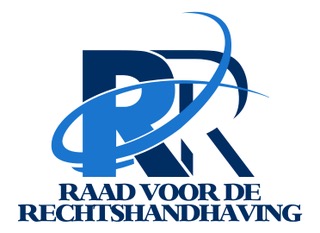Law Enforcement Council: Efforts to combat money laundering are insufficient

PHILIPSBURG — “Don’t tell me what you value; show me your budget and I’ll tell you what your values are,” is a quote attributed to American president Joe Biden that easily comes to mind after reading the Law Enforcement Council’s report about St. Maarten’s efforts to combat money laundering and the financing of terrorism. Conclusion: those efforts are insufficient. Main reason: a painful shortage of equipment, human resources and expertise.
‘The continuous lack of resources hamper authorities from achieving desired results,” the report states, adding that it is “crucial that the Ministry of Justice makes the necessary investments.”
All this should not come as a surprise.
In 2015, the now defunct newspaper Today reported based on an interview with the Financial Intelligence Unit (MOT – Meldpunt Ongebruikelijke Transacties) that this institution registered more than 31,500 unusual transactions between 2011 and 2015 and that 8,769 of them were deemed suspicious. Those suspicious transactions were forwarded to the office of the public prosecutor.
In 2014, the prosecutor’s office received 1,138 reports about suspicious transactions. In its 2014 annual report the prosecutor’s office states that it did not investigate a single one of them.
Even more remarkable, or maybe not, is that parliamentarians and the government remained silent after the Today-publication and the public acknowledgement that the prosecutor’s office did not investigate suspicious transactions.
In 2016 the prosecutor’s office reported in its annual report about selecting transactions worth investigating: “Unfortunately, just as in previous years, investigative capacity has remained a problem due to which many reports of suspicious transactions remained stuck in the early stages.”
The Law Enforcement Council found that “little has changed since 2011” and that, based on a crime analysis report there is a system in which money laundering is flourishing due to the inability of the authorities to fight these crimes.
The Financial Intelligence Unit told Law Enforcement Council-researchers that “in general there is too little attention, interest and dedication from the government administration and the parliament regarding money laundering, and sometimes outright opposition.”
The Law Enforcement Council-report states that the scale of money laundering is significant in St. Maarten “given the size of the population in relation to the number of casinos. While casinos do report transactions to the FIU, the police force believes that this is done by most merely to appear transparent as they are known to be popular venues for money laundering.”
The Unites States State Department labels St. Maarten as a major money laundering jurisdiction, citing the favorable investment climate and rapid economic growth, which is responsible for drawing rich investors who invest in large-scale real estate developments which include hotels and casinos.
That the government does not treat combating money laundering as a priority also appears from an article in the National Ordinance Combating Money Laundering and the Financing of Terrorism. This article states that he minister of justice is responsible for drafting a national policy to combat money laundering and the financing of terrorism based on risks that have been identified. Currently, such a policy does not exist. “The main reason for this is the lack of people, resources and finances across the board,” the report states.
The international money laundering report (2021) of the US State Department notes that St. Maarten has thirteen casinos on a population of 40,000, up to 30,000 temporary residents and nearly two million tourists who visited annually before the COVID 19-pandemic. Some gaming houses have reputations as money laundering centers, albeit not so much for the criminal money of customers but more for the owners and their contacts.”
The FIU’s supervisory role has virtually come to a standstill after Hurricane Irma hit the island in 2017. No surprise: its staff capacity is at 30 percent of what it ought to be; the same numbers apply to the National Detective Agency (Landsrecherche). The FIU has also expressed concerns about its limited powers to impose contributions on the private sector and about insufficient powers to gain access to information from the Cadastre, the Chamber of Commerce and the civil registry. It has suggested the creation of a hybrid FIU that has its own investigation department. Such a move requires a change of the law and according to the FIU there is currently no political support for it. A proposal to this extent was turned down by parliament in 2019, in spite of a positive advice from the Council of Advice.
It all comes down to the country’s budget and to the willingness of politicians to make things happen. For now, all investigative organizations, with the exception of the anti corruption task force (TBO) and the public prosecutor’s office, say that they suffer from a lack of capacity.
“The lack of capacity at the local investigative authorities is one of the major bottlenecks hampering an efficient approach to combating money laundering,” the Law Enforcement Council-report states.
It furthermore notes that the issue of a policy plan ought to be addressed as soon as possible. Another problem: the lack of a Gaming Control Board. “This allows for significant risks, such as money laundering.”
The report also criticizes the Asset Recovery Team, describing it as a paper tiger because not all disciplines are taking part in it. The tax administration has never participated and customs has also given up. “This is unacceptable,” the report states.
The report recommends to give combating money laundering a higher priority and to allocate more resources to it. One reason for some urgency is the upcoming evaluation by the Caribbean Financial Action Task Force (CFATF) in 2024. If this organization, of which St. Maarten is a member, finds that the efforts to combat money laundering and by extension the financing of terrorism are insufficient, St. Maarten could be placed on a gray list and be considered by the rest of the world as a haven for money laundering.
###
Report “Combating money laundering and the financing of terrorism in Sint Maarten”























